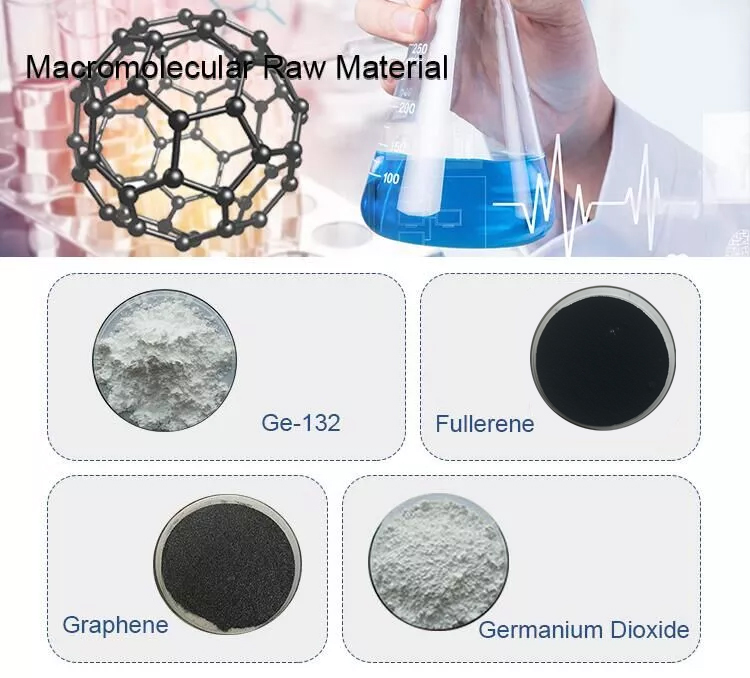Fullerene C60, also known as a buckyball, is a spherical molecule made entirely of carbon atoms arranged in a pattern of 12 pentagons and 20 hexagons, resembling a soccer ball. Its unique structure and properties make it useful in various fields, including nanotechnology, materials science, and medicine. Below are the primary applications of Fullerene C60:
1. Medical and Pharmaceutical Applications
- Antioxidants: Fullerene C60 has strong free radical scavenging properties, which make it a potential antioxidant in reducing oxidative stress and protecting cells.
- Drug Delivery: Its cage-like structure allows for encapsulating drugs or targeting specific cells, improving drug stability and delivery efficiency.
- Photodynamic Therapy: Used in cancer treatment, fullerene C60 can generate reactive oxygen species when exposed to light, aiding in targeted cell destruction.

2. Electronics and Optoelectronics
- Organic Solar Cells: Fullerene C60 serves as an electron acceptor material in organic photovoltaics, enhancing their efficiency.
- Transistors: Its electrical conductivity and semiconducting properties are utilized in the development of high-performance field-effect transistors (FETs).
- Light-Emitting Devices: Fullerene C60’s optical properties make it suitable for use in organic light-emitting diodes (OLEDs).
3. Materials Science
- Lubricants: Due to its spherical shape and low friction coefficient, fullerene C60 is an effective additive in lubricants, reducing wear and tear in mechanical systems.
- Composite Materials: It improves the mechanical, thermal, and electrical properties of polymer-based materials when used as a filler.
4. Energy Storage
- Batteries: Fullerene C60 is explored as a material for electrodes in lithium-ion batteries, offering high capacity and stability.
- Supercapacitors: Its large surface area and excellent conductivity enhance the performance of supercapacitors.
5. Environmental Applications
- Water Purification: Fullerene C60 and its derivatives can adsorb and remove toxic substances and heavy metals from water.
- Environmental Sensors: Used in detecting pollutants and monitoring environmental changes due to its sensitivity and stability.
6. Research and Nanotechnology
- Nanomedicine: Fullerene C60 is extensively studied in nanotechnology for its potential to interact with biological systems at the nanoscale.
- Catalysis: It acts as a catalyst in various chemical reactions due to its unique electronic and surface properties.
7. Cosmetic Applications
- Anti-aging Products: Fullerene C60 is used in cosmetics for its antioxidant properties, reducing the effects of UV-induced skin damage and aging.

Challenges
Despite its promising applications, Fullerene C60 faces challenges such as:
- Cost of Production: Synthesis and purification are expensive.
- Toxicity Concerns: Its biocompatibility and potential environmental impact need thorough evaluation.
If you’re looking to explore a specific application or technical aspect further, let me know!
